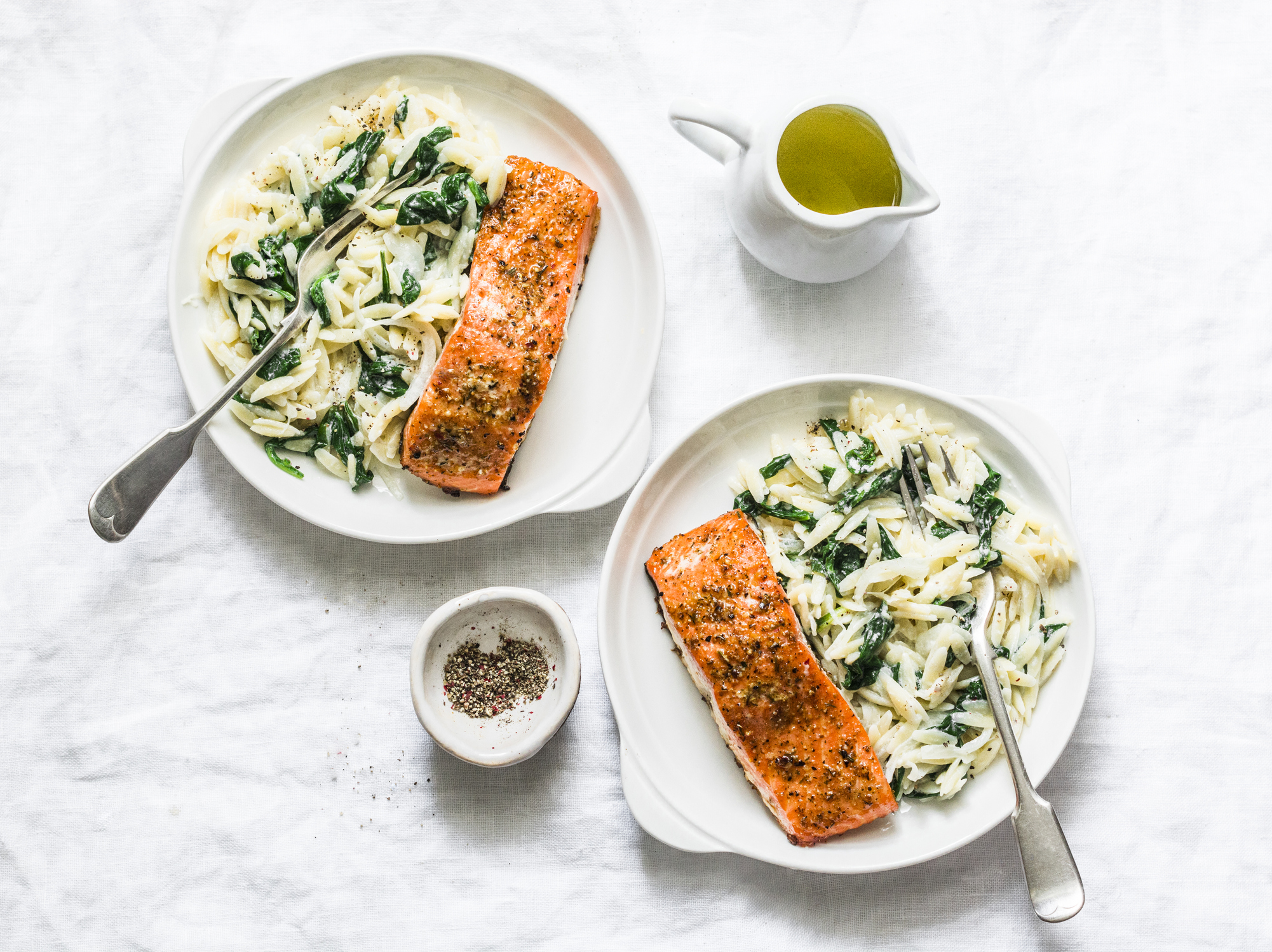While the world seems to spin more out of control with each passing day, it can be difficult to navigate the stress and anxiety of living through a worldwide pandemic. But by focusing on what is within your control, the days of living in isolation can be just a bit brighter. With time to spare, preparing nutritious meals that can help to boost the immune system is well within your reach.
We know that a Mediterranean style diet is one of the best approaches to providing good nutrition to support health and longevity. The foundation of the diet includes fresh fruits and vegetables, nuts, beans, herbs and whole grains with moderate amounts of dairy, poultry, eggs and seafood.
According to a recent U.S. News Health report, many of these same foods including almonds, that are rich in vitamin E, can help support the immune system. Almonds are not only an antioxidant but the nut is also a good source of protein and healthy fat. Vitamin C is also important to help our bodies fight illness by forming antibodies; bell peppers are a rich source of the antioxidant vitamin C and beta carotene for good eyesight and skin health.
An immune-boosting diet is also high in fiber found in broccoli, which is also rich in vitamins A, C, E and potassium. Dark leafy greens like kale, spinach and arugula can help support the immune system by reducing inflammation; try pairing greens with a healthy fat to increase absorption.
Adding garlic to meals daily has also been found in studies to help support the immune system. Garlic is a natural anti-inflammatory and has antibacterial properties; it offers it’s greatest benefits in a raw state but if you are using it in cooked dished, try adding it in as the last ingredient so it doesn’t heat above 140 °F, according to the Cleveland Clinic.
Citrus fruits like oranges, grapefruit, lemons or limes are also anti-inflammatory and have antioxidant effects as well as vitamins and minerals to help improve our ability to fight off infection.
Zinc, found in pumpkin seeds are also important for immune cells to function properly. According to the Mayo Clinic, zinc may help shorten the length of colds; the recommended dosage is 8mg daily for women and 11mg for men. Be sure to talk with your doctor before adding any supplement or medication to your regime as some may interact with other drugs.
Don’t forget to go outdoors, take a few deep breaths, get some exercise and find ways to take a break from each day from the news and social media. Stay well. Be safe.






Add Your Voice
0 Comments
Join the Discussion